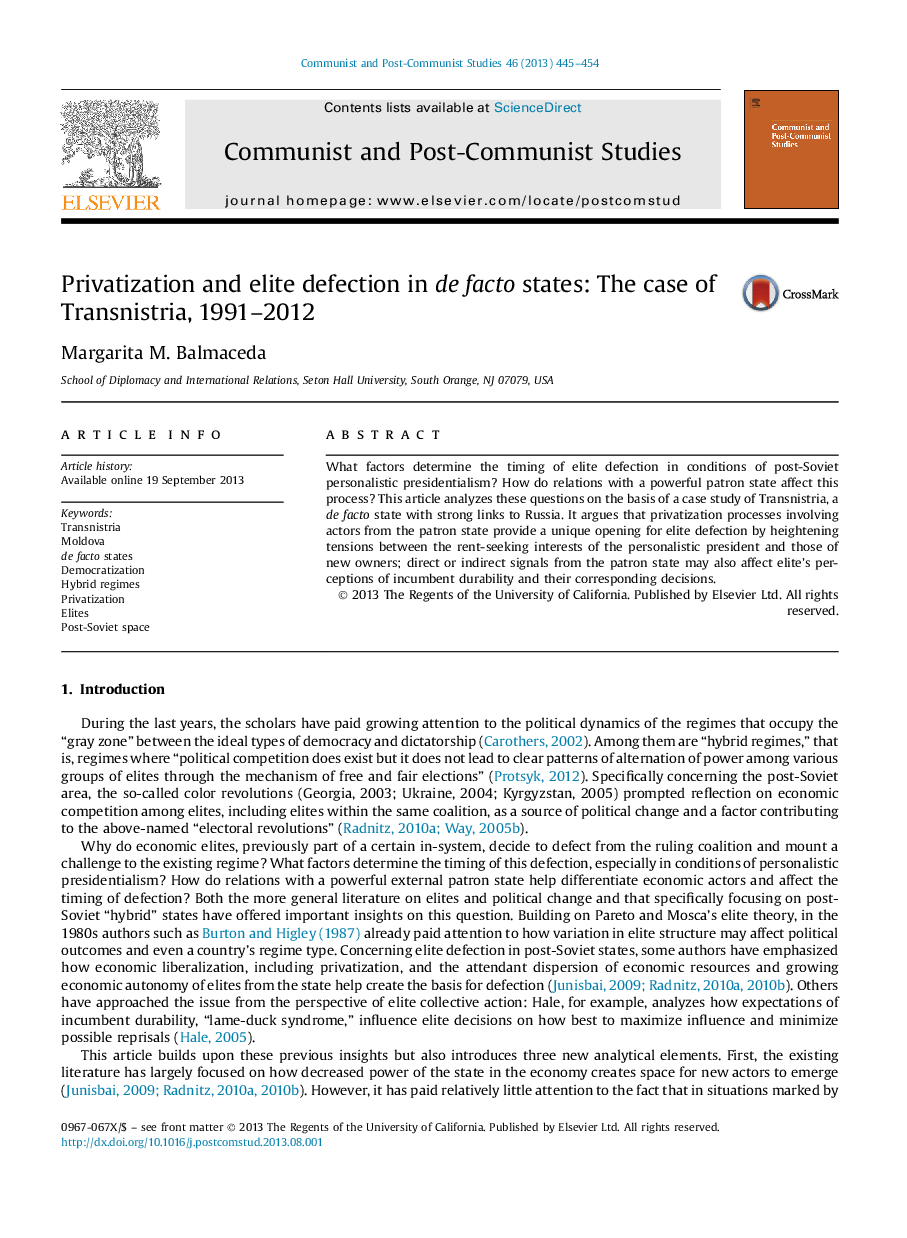| Article ID | Journal | Published Year | Pages | File Type |
|---|---|---|---|---|
| 1046412 | Communist and Post-Communist Studies | 2013 | 10 Pages |
Abstract
What factors determine the timing of elite defection in conditions of post-Soviet personalistic presidentialism? How do relations with a powerful patron state affect this process? This article analyzes these questions on the basis of a case study of Transnistria, a de facto state with strong links to Russia. It argues that privatization processes involving actors from the patron state provide a unique opening for elite defection by heightening tensions between the rent-seeking interests of the personalistic president and those of new owners; direct or indirect signals from the patron state may also affect elite's perceptions of incumbent durability and their corresponding decisions.
Related Topics
Social Sciences and Humanities
Social Sciences
Development
Authors
Margarita M. Balmaceda,
